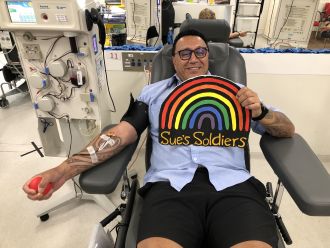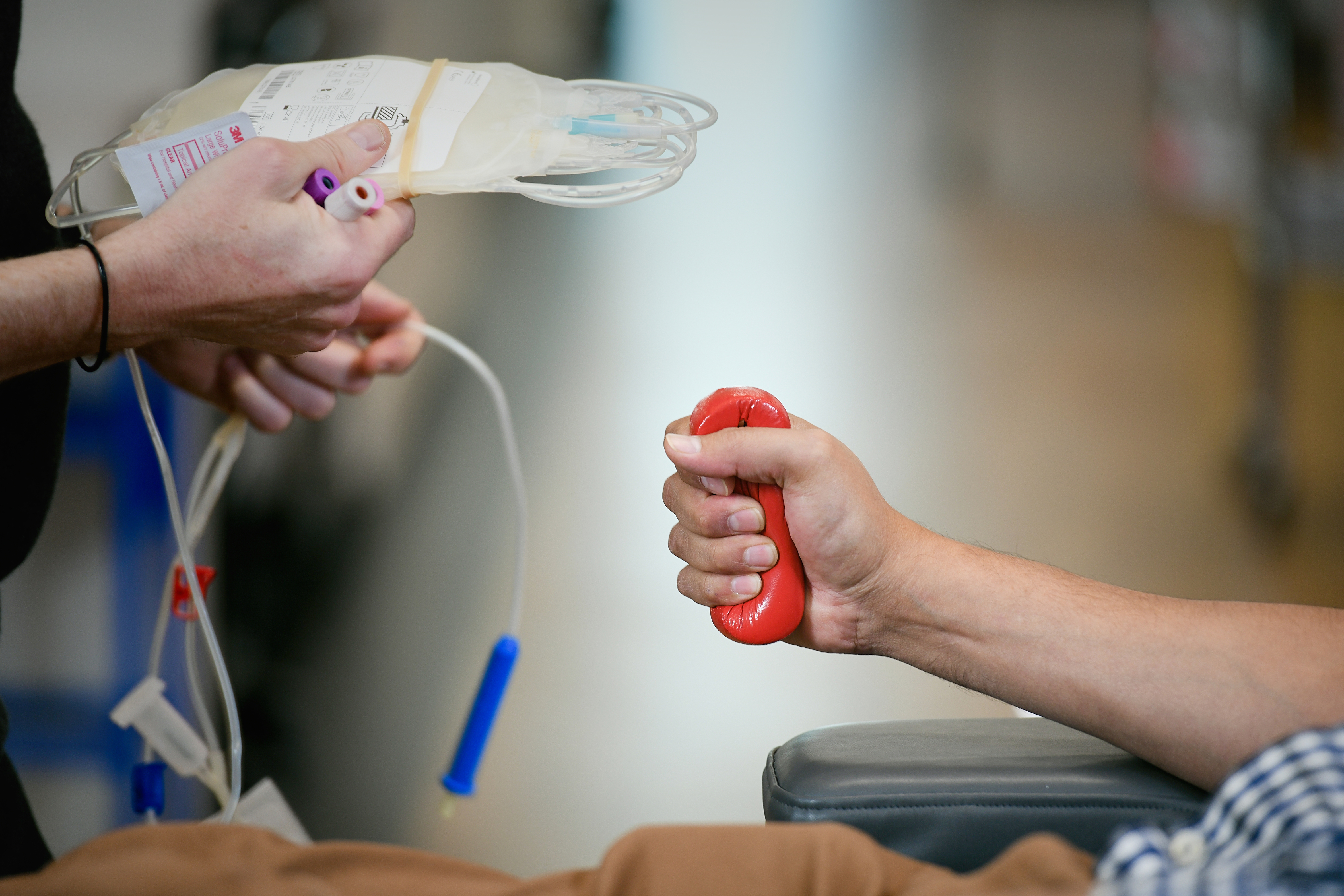News release
From:
MEDIA RELEASE
EMBARGOED Wednesday 6 March, 2024
Shift in lesser-known blood types linked to Australia’s increasing ethnicity
The first study to look at the prevalence of lesser-known blood groups within the Australian population that need to be “matched” during a blood transfusion shows they have changed, most likely due to increasing ethnic diversity.
While the basic blood groups, A, AB, B and O, all of which are either negative or positive, are routinely matched prior to transfusion, there are more than 360 blood types, and some can cause reactions if not closely matched.
The study of 490,000 blood donors, published in Pathology, looked at some of the lesser-known types in the Rh blood group system, as well as the Kell, Duffy and Kidd systems, and found different proportions than previous estimates. This study follows research showing the impact of Australia’s changing ethnic mix on ABO and Rh blood types.
The study found a jump in R1R1, a blood type variation linked to people who are B and AB blood types (people have multiple blood types) which is more commonly found in Asia, the Middle East and India.
It also found often-in-demand Duffy and Kidd null types are more common in donors born in countries such as New Zealand, Samoa, Zimbabwe, Egypt, Iran, Syria, and the Philippines.
Lead researcher Dr Rena Hirani said that while Australia has a highly multicultural donor population, any shift in blood groups in the population leads to a matching diversity in people who need blood transfusions.
“We need an increasingly broad mix of ethnicities in our donor pool to meet the needs of patients, particularly those who may have conditions that require multiple or ongoing transfusions,” she said.
“This research shows that having more blood donors from Polynesian, African, Middle Eastern and Asian heritage, to name just a few, will be critical as we see more patients from these backgrounds.”
Dr Hirani explained that for women who may conceive a baby in the future, it’s especially important to use matched blood.
“Antibodies generated from an incompatible blood transfusion can pass through the placenta into the baby’s bloodstream,”
“This can cause a condition called haemolytic disease of the foetus and newborn, where those antibodies attack and destroy red blood cells, which can cause anaemia, disability, and even death.”
The data from this research study will be used by Lifeblood for blood supply planning and to support further research and programs to encourage people with diverse ethnic backgrounds to donate blood.
“Ultimately, the distribution of blood groups that we collect from our donors should reflect as closely as possible the distribution of blood groups required by patients who need transfusion,” Dr Hirani said.
Blood Type Most commonly found in
Duffy Egypt, Zimbabwe, Kenya, Sudan, Nigeria
Kidd Philippines, New Zealand, Samoa, Tonga
B and AB Asia, India, Pakistan, Middle East
A European heritage
Multimedia






 Australia; NSW; ACT
Australia; NSW; ACT


